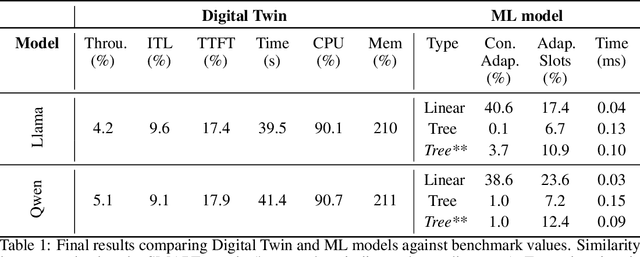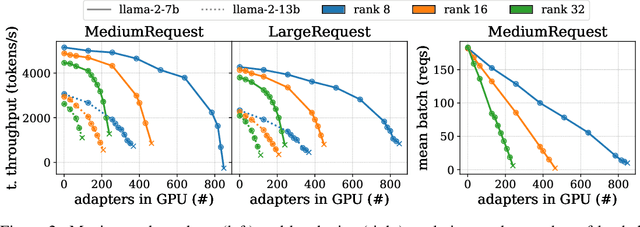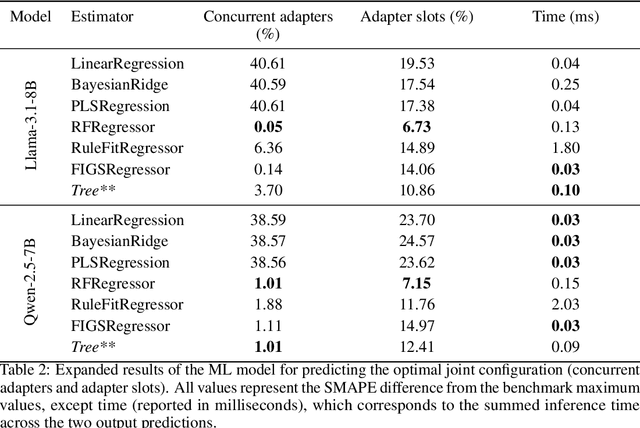Maximizing GPU Efficiency via Optimal Adapter Caching: An Analytical Approach for Multi-Tenant LLM Serving
Paper and Code
Aug 11, 2025



Serving LLM adapters has gained significant attention as an effective approach to adapt general-purpose language models to diverse, task-specific use cases. However, serving a wide range of adapters introduces several and substantial overheads, leading to performance degradation and challenges in optimal placement. To address these challenges, we present an analytical, AI-driven pipeline that accurately determines the optimal allocation of adapters in single-node setups. This allocation maximizes performance, effectively using GPU resources, while preventing request starvation. Crucially, the proposed allocation is given based on current workload patterns. These insights in single-node setups can be leveraged in multi-replica deployments for overall placement, load balancing and server configuration, ultimately enhancing overall performance and improving resource efficiency. Our approach builds on an in-depth analysis of LLM adapter serving, accounting for overheads and performance variability, and includes the development of the first Digital Twin capable of replicating online LLM-adapter serving systems with matching key performance metrics. The experimental results demonstrate that the Digital Twin achieves a SMAPE difference of no more than 5.5% in throughput compared to real results, and the proposed pipeline accurately predicts the optimal placement with minimal latency.
 Add to Chrome
Add to Chrome Add to Firefox
Add to Firefox Add to Edge
Add to Edge